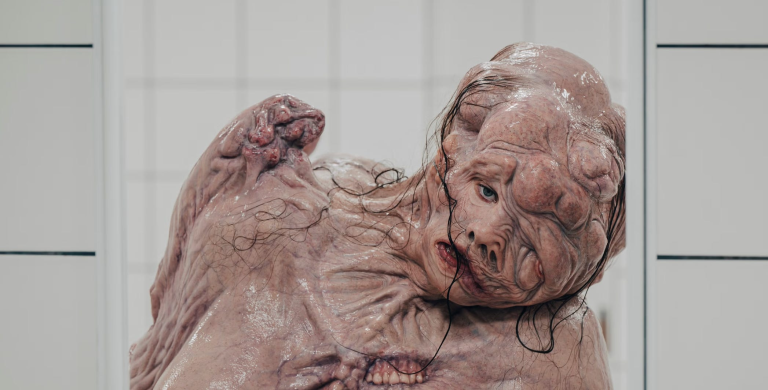
Our Fault In Being Overly Analytical
But what actually ends up happening is that things get pulled so far out of context they become repurposed just for the sake of an argument.
The other day, I visited an art gallery and ended up talking to the artist who happens to be a friend of a friend. She has a signature motif that acts as the focal point in all of her work– a bright, red umbrella that is always situated among an otherwise generally neutral-toned scene. I asked her what the significance of it was. Her entire collection, which is featured in its own gallery, is based around it, so I assumed it was something fairly profound or important to her. Her response is what I want to write about today.
There was no significance. She just needed a pop of color. But what she told me next was what I found most interesting: she said that sometimes she’ll hear people come by, not realize she’s there, make up stories about it’s meaning and lecture one another about it as though they know for certain. She said that it’s for this reason that she’s grown increasingly skeptical of theorizing any artist’s intentions in the academic sense, and that she believes assumptions shouldn’t be drawn unless there is documented evidence that it’s what the artist intended.
I think she raises a great point, one of which I see and experience myself fairly regularly, though admittedly not to the extent she does. So often my coworkers and I end up either giggling or just being absolutely perplexed by how people dissect intentionally banal, meaningless things and make controversy out of them. And I don’t mean to be accusatory of anybody or anything here, because I’m sure I’ve done the same thing in my own life– I think it’s human, and that’s the point. It would seem we don’t know how to let the essence of something be enough. We, for whatever reason, need to dissect everything into pieces so as to create digestible bits of meaning that we can then cultivate appreciation for. But what actually ends up happening is that things get pulled so far out of context they become repurposed just for the sake of an argument.
Now, the counter-argument here would be that the point of art, writing, literature, what have you, would be just that– to pull it apart, understand it in and out of context, to find elements of it that we relate to and internalize those parts to find our own meaning, whatever we make of it. That the idea of it is to inspire such discussion, and we should allow those dissected, theoretical bits to act as starting points and sounding boards for questions and ideas. And that we should run with them and facilitate a conversation that will open our minds to different possibilities.
But generally speaking, that’s not how we behave and that’s not what ends up happening. And it’s a shame. What we do is we actually externalize it and use it to judge or make commodity of the issue at hand or the person who created it. The problem is that we see things as we are, not as they are, (that’s Anaïs Nin I believe) and we end up applying concepts that we derive from our own frame of reference and lending them to a larger meaning, a grandeur scheme, and when it seems infuriatingly ignorant or inaccurate (because we inevitably misinterpret) we lash out in ways that are completely counter-productive. The art of having a conversation about anything realistically has all but dissolved, if we ever really had it to begin with.
The thing is that in most aspects of life, being overly analytical is worse than the alternative. Because we actually over-think the surface and delude ourselves into believing we’re seeing underneath it. We aren’t. Sometimes things are that simple. Sometimes they’re not. There’s a time and place for dissection. There’s a time to take things as they are and roll with the punches. There’s a time to accept that some things are just lighthearted jokes. There’s a time to let things go and let things be– to allow the existence of something to be enough. And there’s also a time to think critically, converse respectfully, cultivate beliefs, take a stance and rally with the best of them. But in the grand scheme of it all, in the most abstract and yet pretty literal way, things are mostly great, unfolding mysteries. And we should sometimes let them be just that. ![]()











